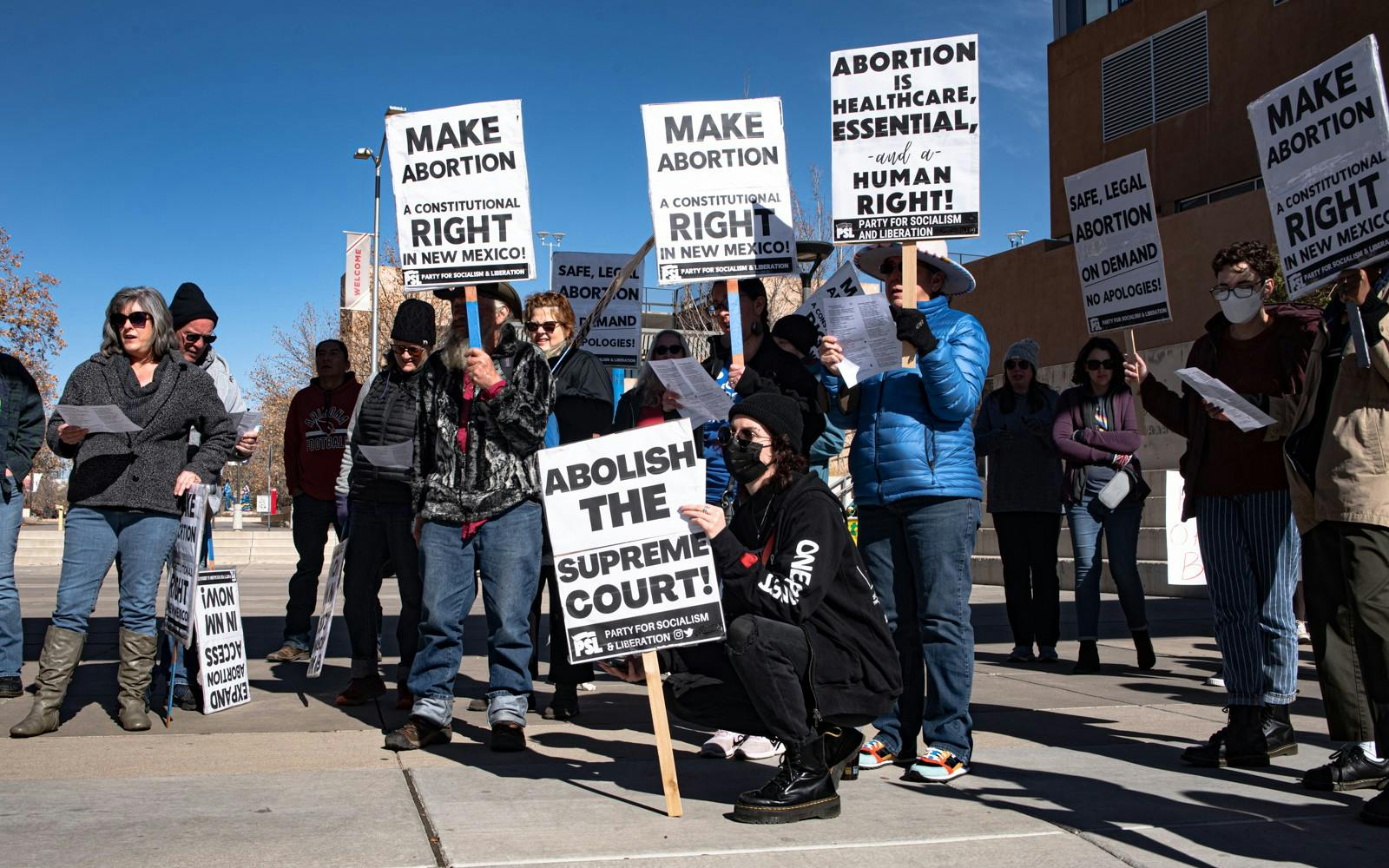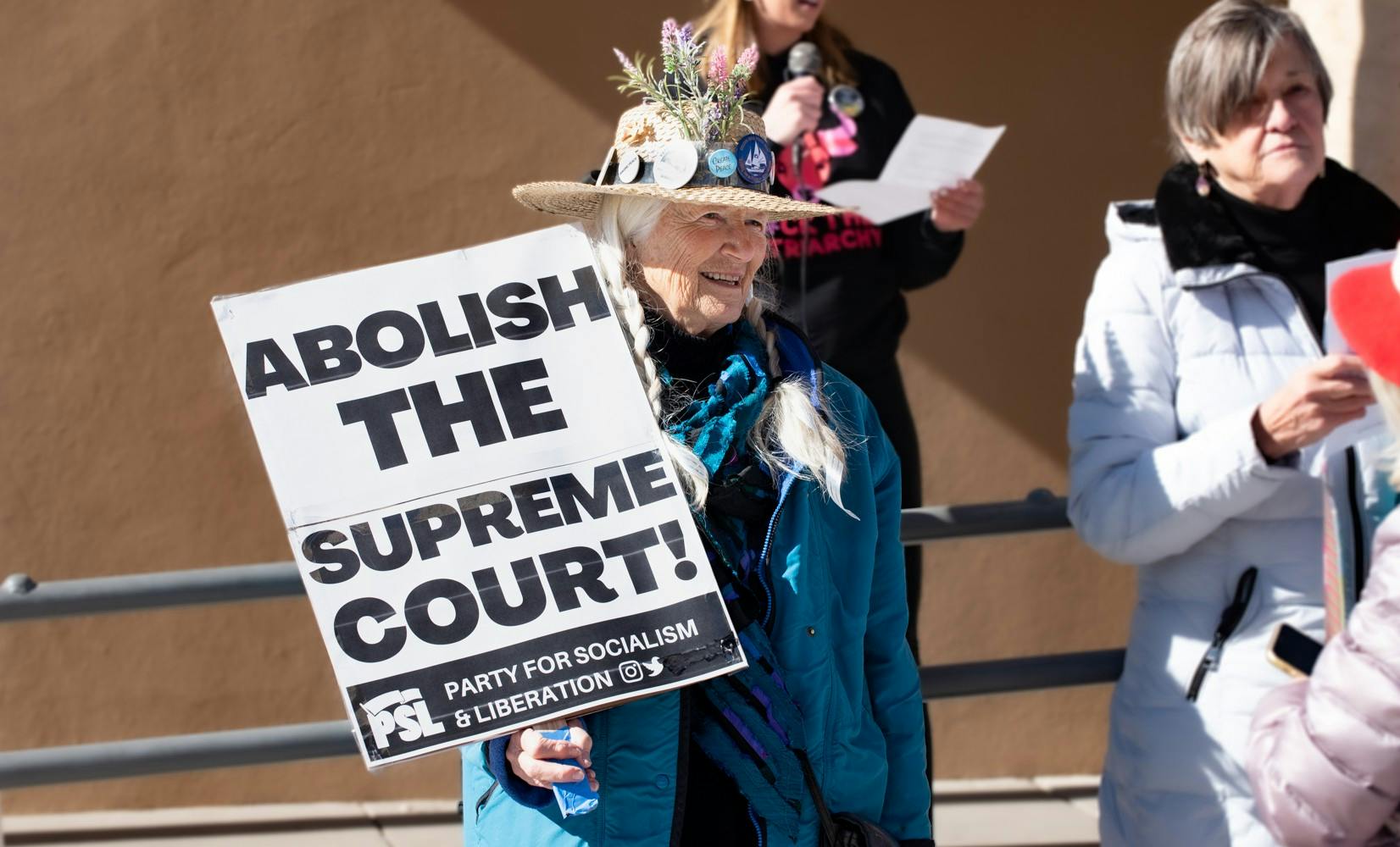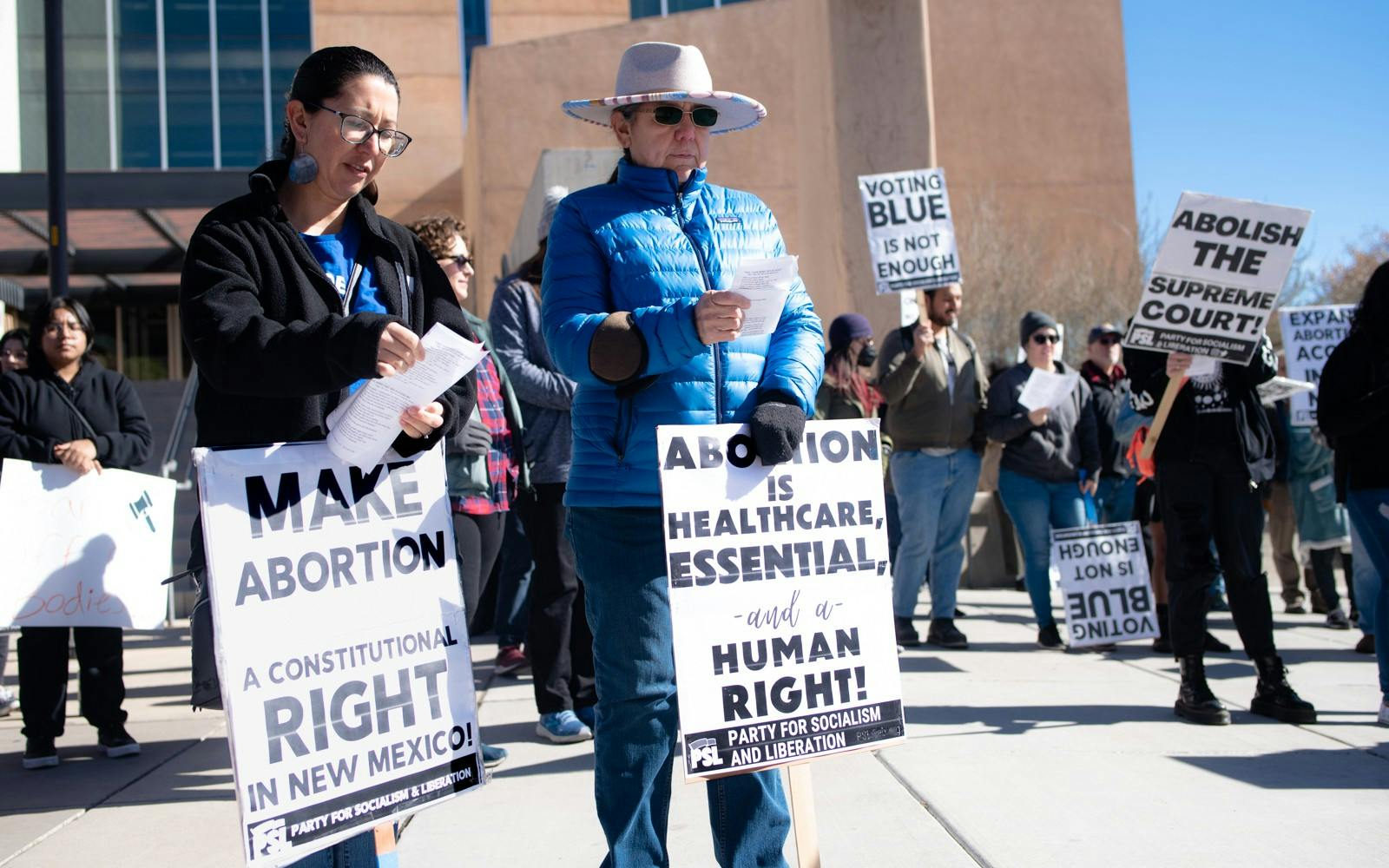On Sunday, Jan. 22, dozens gathered outside of the University of New Mexico bookstore to call for reproductive justice on the 50th anniversary of Roe v. Wade, the Supreme Court case that established a constitutional right to an abortion under the privacy clause that was subsequently reversed in 2022.
The rally was held in solidarity with the sister protest occurring at the same time in Clovis, New Mexico, according to Reyan Tuck, a UNM student and protest organizer. The intent was to call attention to the lack of abortion access in rural New Mexico, specifically Clovis, where the city commissioners recently passed a measure to restrict abortion access, similar to what has been done in other towns in rural New Mexico, including Hobbs, according to KRQE.
“I really wanted to show solidarity with rural New Mexico that has a lot more issues with abortion than you think, (so) it is important to show that solidarity,” Tuck said.
The rally included many community members speaking on reproductive justice issues, along with performances by the Raging Grannies, an international activist group who, “are out in the streets promoting peace, justice, social and economic equality through song and humor.” The group of women sang political parodies of classic songs.
One of the speakers included Dr. Nadia Marsh, a family medicine physician at UNM Hospital, who spoke about what has changed for health care providers since the reversal of Roe v. Wade. She said that many of her colleagues who would like to have joined were unable to because of shifts at the hospital.
“I'm very proud to be part of this struggle as a woman, as a health care provider. And I've had the opportunity over the past couple of weeks to speak to my colleagues who work in New Mexico and other states about the situation. And many of my colleagues say that they are completely intimidated and bullied,” Marsh said. “I have friends in Georgia, in Mississippi. They're intimidated to even talk or advocate for abortion because (of) their clinics and they have been told that they will face criminal penalties.”
Along with rural areas having less access to abortion in comparison to urban areas, people of color and those of lower socioeconomic classes also face more barriers to access, according to Marsh.
“I would say it's predominantly affecting women who are poor women of color — working class women — because they have nowhere to go. They can't spend thousands of dollars literally to go to another state, in most cases,” Marsh said.
This sentiment was echoed by Maria Ramos, a protester at the rally who said that it was time to listen to voices that may not have been uplifted in the past to achieve reproductive justice.
“I think it really just comes down to a lot of people who are used to being (heard) to really stepping back and learning,” Ramos said.
In this upcoming legislative session, Sen. Linda Lopez plans to introduce the Reproductive Health Care Protection Act to codify protections for providers in the state. This is in addition to legislation to be introduced by Rep. Linda Serrato aimed at preventing towns from placing local restrictions on abortion access in New Mexico, thus reducing confusion on regional legality, according to Source New Mexico.
Many of those present at the rally, including Tuck, called for protection beyond what has been proposed, specifically asking for a constitutional amendment protecting the right to an abortion in the state.
Get content from The Daily Lobo delivered to your inbox
“The Democratic Party has announced they'll introduce some legislation sessions to help protect and exceed abortion rights. But we're here to make sure that they uphold the promises,” Tuck said. “We're asking for even more that the Democratic Party makes it a priority that abortion is made a constitutional right here in New Mexico.”
Maddie Pukite is the managing editor at the Daily Lobo. They can be contacted at managingeditor@dailylobo.com or on Twitter @maddogpukite








